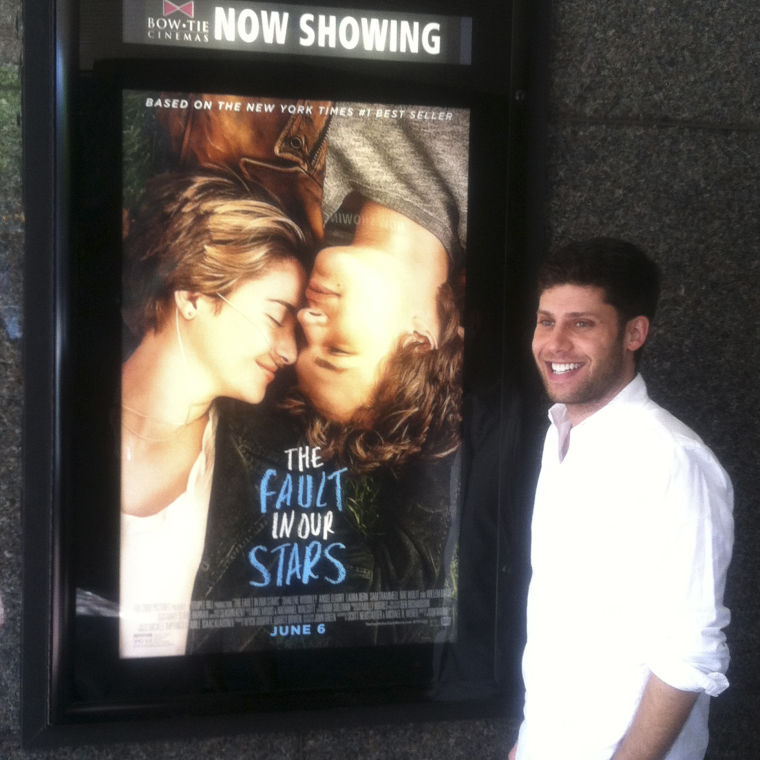
Dozens of people who watched a 10:30 a.m. screening of “The Fault in Our Stars,” last Saturday at the Bow Tie Cinemas Theater in Great Neck had the opportunity to speak with one of the film’s screenwriter, Great Neck native, Michael Weber.
The screening and Q&A was sponsored by Bow Tie Cinemas and coordinated by the Gold Coast Arts Center.
“We coordinated it because we thought it was a great event,” said Regina Gil, executive director of the Gold Coast Arts Center.
The Great Neck screening was one of the stops Weber made on his tour of the country to promote the movie during its opening weekend. The movie made about $60 million and was named the No. 1 movie in the nation for the June 6 weekend.
Weber told those gathered at the theater that his stop in Great Neck was one he made sure he could attend.
“They have me running all over the place but I said I have to go to Great Neck,” Weber said.
“The Fault in Our Stars” movie is based off a novel by author John Green that tells the story of two cancer-stricken teenagers, Augustus Waters and Hazel Grace Lancaster, who fall in love after meeting at a cancer survivors support group.
After the near-two hour movie finished, Weber answered questions from the audience that mainly revolved around his adaptation of the book.
“You want the movie to resemble the book but it can’t be exactly the same,” Weber said.
A moviegoer asked Weber why he and co-screenwriter Scott Neustadter took out a scene in the book where the main characters sold a swing set on Craigslist.
“It was too long,” Weber said.
Weber also said that the screenwriters removed several characters from the book because it would have taken away from the relationship plot of the two main characters.
“It just wasn’t necessary for the journey of Hazel and Augustus,” he said. “It would have come at their expense.”
Weber said that after reading the book as a fan of Green’s novels, he re-read the book and went through the scenes “beat by beat.”
“I just went through it with a high lighter saying that’s good, oh that quote will make me look good,” Weber said.
Weber and Neustadter then pitched the idea to Fox 2000 Pictures and said he “begged” for the opportunity to be the movie’s screenwriter.
“Usually you don’t go in there and do that but I was not above begging,” he said.
Weber was also asked about his working relationship with Green, and if the author was overbearing in the writing and production of the movie.
Weber said that Green let the screenwriters and producers do what they wanted to do and had minimal input in how the movie was made.
“He just said write what you think will be the best version of the movie,” Weber said.
Weber also said that Green praised the ending of the movie as “better than the book.”
“He said that he liked our version a lot better and that made him mad,” Weber said. “That’s just about the highest compliment you could get.”
Weber also answered questions about writing the screenplay for another one of Green’s books, “Paper Towns.”
“We were fortunate that they asked us to write Paper Towns as well,” he said.
Weber said he does not know if he will be asked to write a screenplay for another Green novel in the future.
“You don’t control what gets to happen to these books,” he said.
Weber also spoke about his career as a screenwriter, saying that the most important thing for writers to do was to have a peer to check their work for them.
“One of the benefits of collaborating is finding someone who has the same interests as you, but who also pushed you to do better,” he said. “Making films is a shared experience.”
Weber said in an interview with Blank Slate Media that the appearance was his first in his screen writing career, but that he would love to come back in the future.






